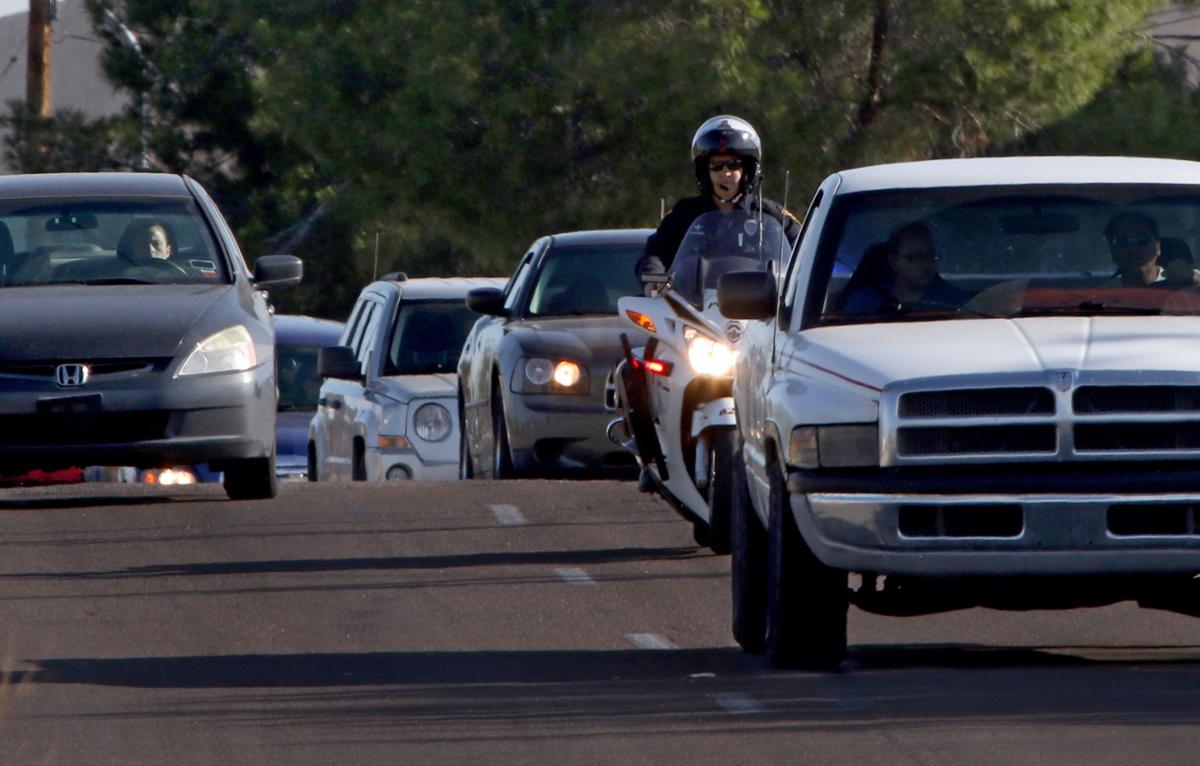PHOENIX — Got a bit of a lead foot while behind the wheel, but a light wallet?
State lawmakers are moving to let motorists work off their traffic fines.
House Bill 2110 would allow — but not require — a judge to convert a fine into community service. It would translate into $12 for every hour worked.
State Rep. Leo Biasiucci, R-Lake Havasu City, said he doesn’t envision this being an option for everyone.
“Not may people will be taking advantage of this,” he told colleagues on the House Transportation Committee who considered the measure on Wednesday.
“If you think about it, do you really want to waste time doing community service?” he asked. “Probably not.”
He said many motorists will choose to go to traffic school where a four-hour class can wipe a citation off the record. And for others, Biasiucci said, it might be easier to simply “pay the ticket and get done with it.”
“But for the people that really need it, which is a small group, they’re going to take advantage,” he said.
Clean up following a rollover motor vehicle collision at the intersection of Kolb and Sabino Canyon in Tucson on January 22, 2021. Kelly Presnell / Arizona Daily Star
Biasiucci said these are people who can’t afford the ticket — and the various surcharges that can nearly double the fine — and end up having their licenses suspended for failure to pay. It gets more complicated, he said, if they then get arrested for driving on a suspended license and their car is impounded.
The proposal has the backing of the American Brotherhood Aimed Toward Education, an organization that lobbies for the rights of motorcyclists.
Lobbyist Michael Infanzon told of a rider who ended up in legal trouble when he didn’t keep up with a payment plan and had his license suspended. Judges need discretion to deal with people who have financial issues, he said.
“I think he’s trying to do something really great,” Rep. Amish Shah, D-Phoenix, said of Biasiucci.
But the measure, while approved by the Transportation Committee on a 6-2 margin, faces an uncertain future, due to legal reasons.
One deals with the fact that the Citizens Clean Elections Commission is financed largely by a 10% surcharge on civil, criminal and traffic fines.
The commission, created by voters in 1998, provides public funds to candidates for statewide and legislative office who agree not to take private dollars. It also puts out voter education pamphlets and conducts debates.
The funding for those activities was part of what voters approved, said Tom Collins, the commission’s executive director. He said the Legislature is constitutionally precluded from undermining that funding source.
Biasiucci said he doesn’t see it that way. He said the voter-approved law says the commission gets 10% of any money that is collected, so money not collected isn’t an issue.
Marilyn Rodriguez, who lobbies for Living United for Change in Arizona, said there’s another potential legal issue.
She noted the 13th Amendment of the U.S. Constitution prohibits slavery and involuntary servitude “except as a punishment for crime where the party shall have been duly convicted.” Rodriguez said it is an interesting question whether the legislation amounts to mandating court-ordered labor for civil violations.
Still, Rodriguez said her organization hopes something can be worked out.
“We do believe it is possible to achieve an outcome to help those trapped in the justice system simply because they do not have the resources to climb out of the monetary hole,” she said.
The measure goes to the full House after a review of constitutional issues by the Rules Committee.
Photos: Baseball legend Hank Aaron in Tucson, 1975
Hank Aaron, Tucson
Updated
Baseball legend Hank Aaron is besieged by young fans during a Spring Training game between the Cleveland Indians and Milwaukee Brewers at Hi Corbett Field in Tucson on March 23, 1975, a year after he broke Babe Ruth's major league record for home runs in Atlanta.
Hank Aaron, Tucson
Updated
Baseball legend Hank Aaron smiles from the dugout during a Spring training game between the Cleveland Indians and Milwaukee Brewers at Hi Corbett Field, Tucson, on March 23, 1975, a year after he broke Babe Ruth's record for career home runs.
Hank Aaron, Tucson
Updated
Hank Aaron of the Milwaukee Brewers gets a base hit during a Spring training game against the Cleveland Indians at Hi Corbett Field, Tucson, on March 23, 1975, a year after he broke Babe Ruth's home run record.
Hank Aaron, Tucson
Updated
Hank Aaron of the Milwaukee Brewers jogs to first base during a Spring training game against the Cleveland Indians at Hi Corbett Field, Tucson, on March 23, 1975, a year after he broke Babe Ruth's home run record.
Hank Aaron, Tucson
Updated
Hank Aaron of the Milwaukee Brewers in the on-deck circle during a Spring training game against the Cleveland Indians at Hi Corbett Field, Tucson, on March 23, 1975, a year after he broke Babe Ruth's home run record.





